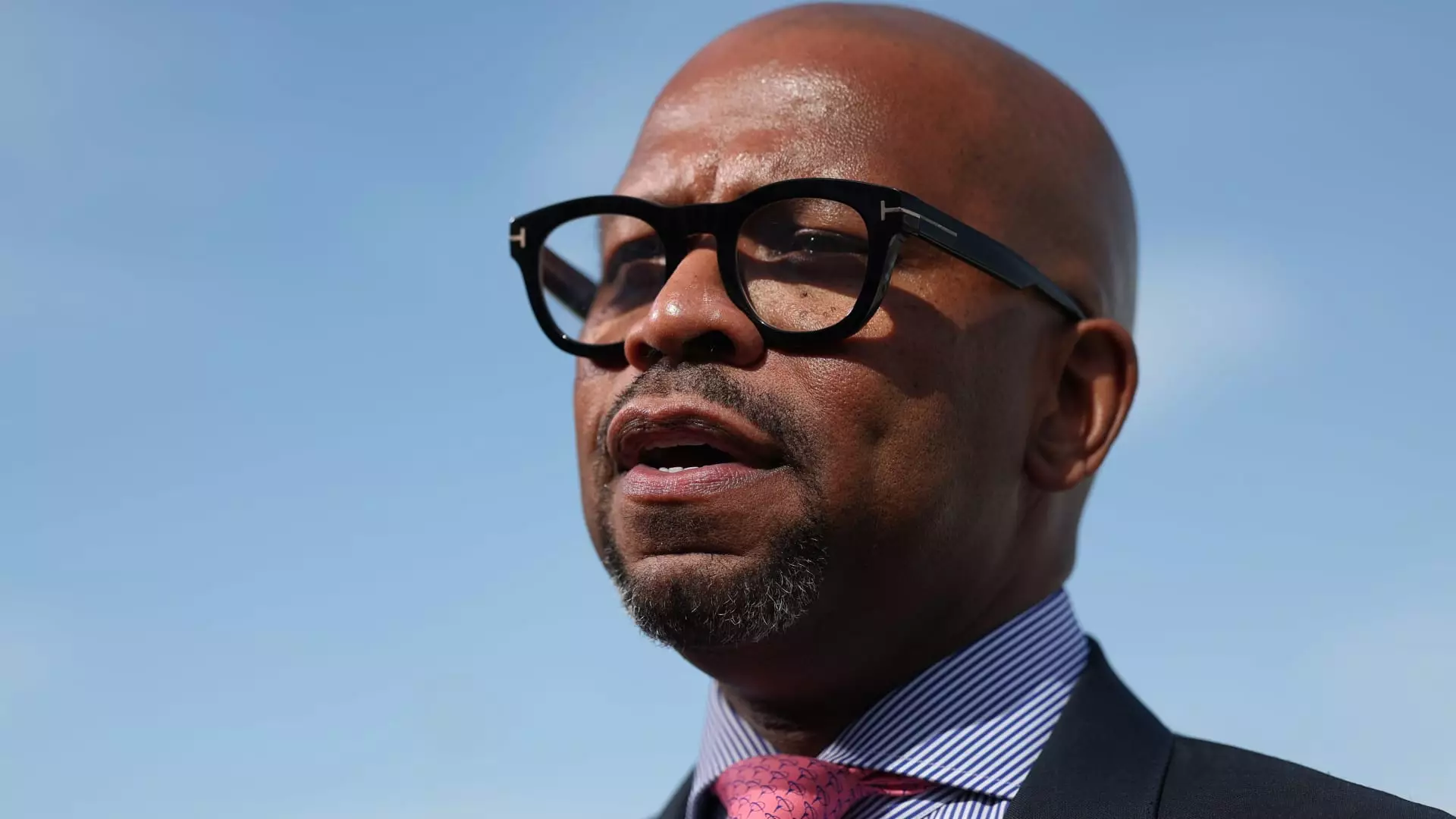The recent departure of Ted Colbert, the head of Boeing’s defense unit, has sent shockwaves through the aerospace industry. Announced through a memo from CEO Kelly Ortberg, this change marks Ortberg’s first significant move since taking the reins less than two months prior. The decision underscores a pivotal moment for Boeing as it navigates a landscape riddled with challenges and setbacks. This new phase signifies not only a leadership vacuum but also a crucial step in addressing ongoing systemic issues within the company.
Boeing’s defense unit, which has historically been a key revenue driver, contributing nearly 40% of the company’s total income in the first half of the year, has been mired in difficulties recently. Production delays and soaring costs, particularly concerning the new 747s to be used as Air Force One, are symptomatic of deeper-rooted problems. Ortberg’s emphasis on restoring customer trust and meeting elevated expectations highlights an urgent need for accountability and operational improvement. By terminating Colbert’s tenure, intended to signal a commitment to change, Boeing is attempting to reposition itself in the eyes of customers and stakeholders alike.
In his memo, Ortberg accentuates the importance of trust and high performance—two essential components for Boeing’s reputation and financial stability. The relationship between an aerospace manufacturer and its clients, particularly in defense and government contracts, relies heavily on reliability and adherence to standards. The struggles of the defense unit could jeopardize contracts and future projects if left unaddressed. The forthcoming leadership appointment will necessitate a strategic vision aimed at not only stabilizing operations but also rebuilding a fractured relationship with clientele who expect excellence and innovation.
With COO Steve Parker stepping into the leading role, Boeing faces a period of transition and uncertainty. Parker’s task will be to navigate the ongoing challenges while addressing internal issues that have previously hindered success. An interim leader often encounters the dual challenge of maintaining momentum while instigating change; this is a crucial time for Boeing to formulate a coherent strategy. Stakeholders will scrutinize Parker’s decisions closely to gauge whether they align with Ortberg’s statements regarding performance improvement and commitment fulfillment.
Boeing’s current predicament extends beyond the immediate leadership shift. The space sector’s trials, such as the issues surrounding the Starliner program—highlighted by its failure to bring NASA astronauts back on its initial mission—serve as a stark reminder of the operational hurdles that need addressing. With competitors like SpaceX making significant strides in similar domains, Boeing must urgently recalibrate its approach if it is to regain its footing in both the defense and space markets.
The departure of Ted Colbert is not just a leadership change; it is emblematic of a broader struggle for Boeing as it contends with production inefficiencies, rising costs, and a pressing need to restore customer confidence. As current dynamics unfold, the future of Boeing’s defense, space, and security unit will be critical. The company stands at a crossroads, and its actions in the coming months could redefine its trajectory in what is an increasingly competitive industry.


Leave a Reply